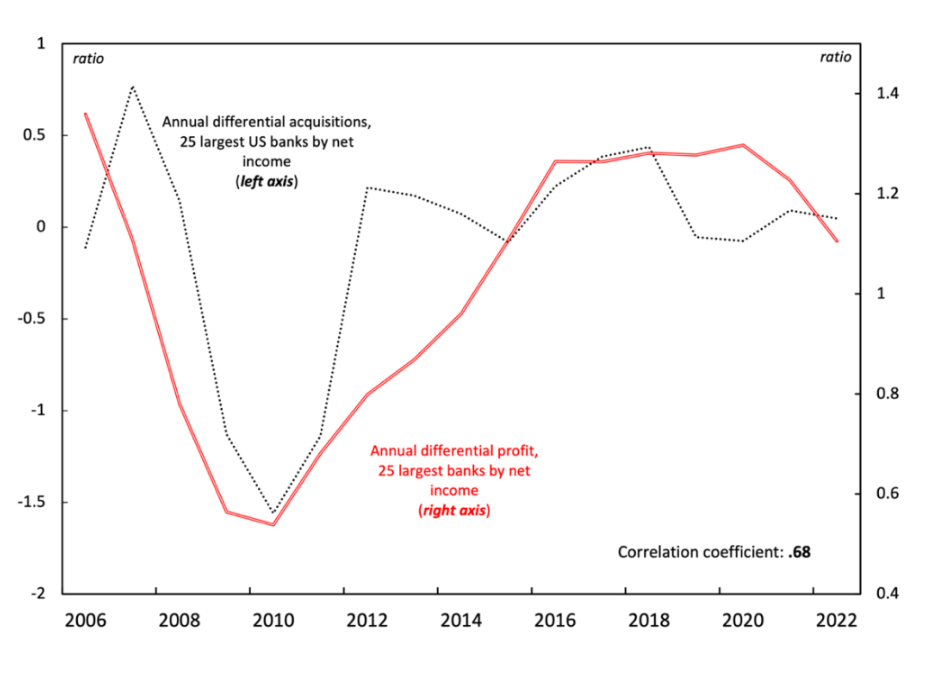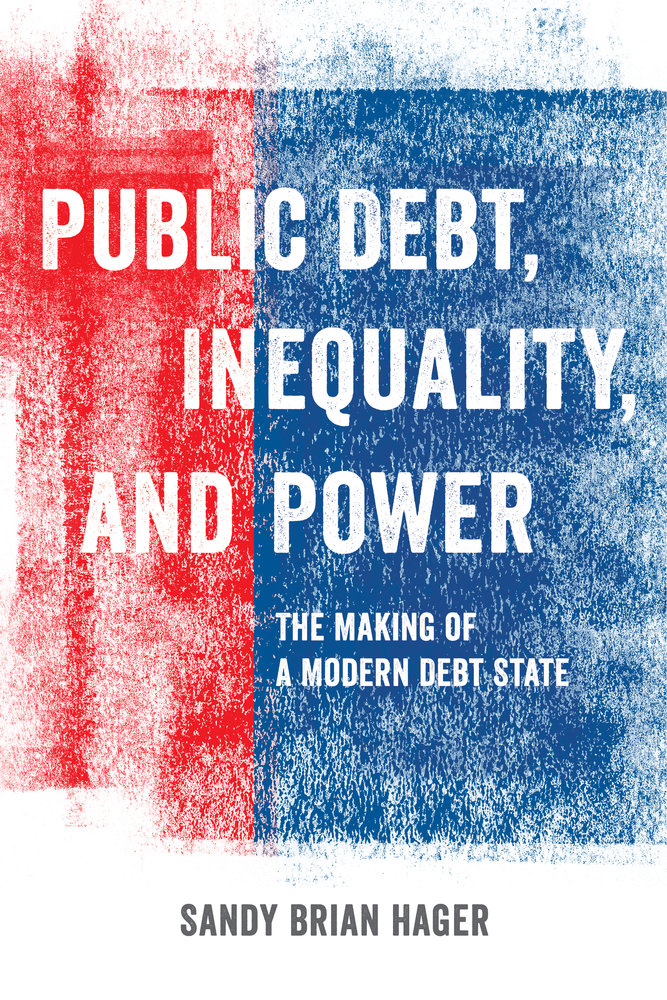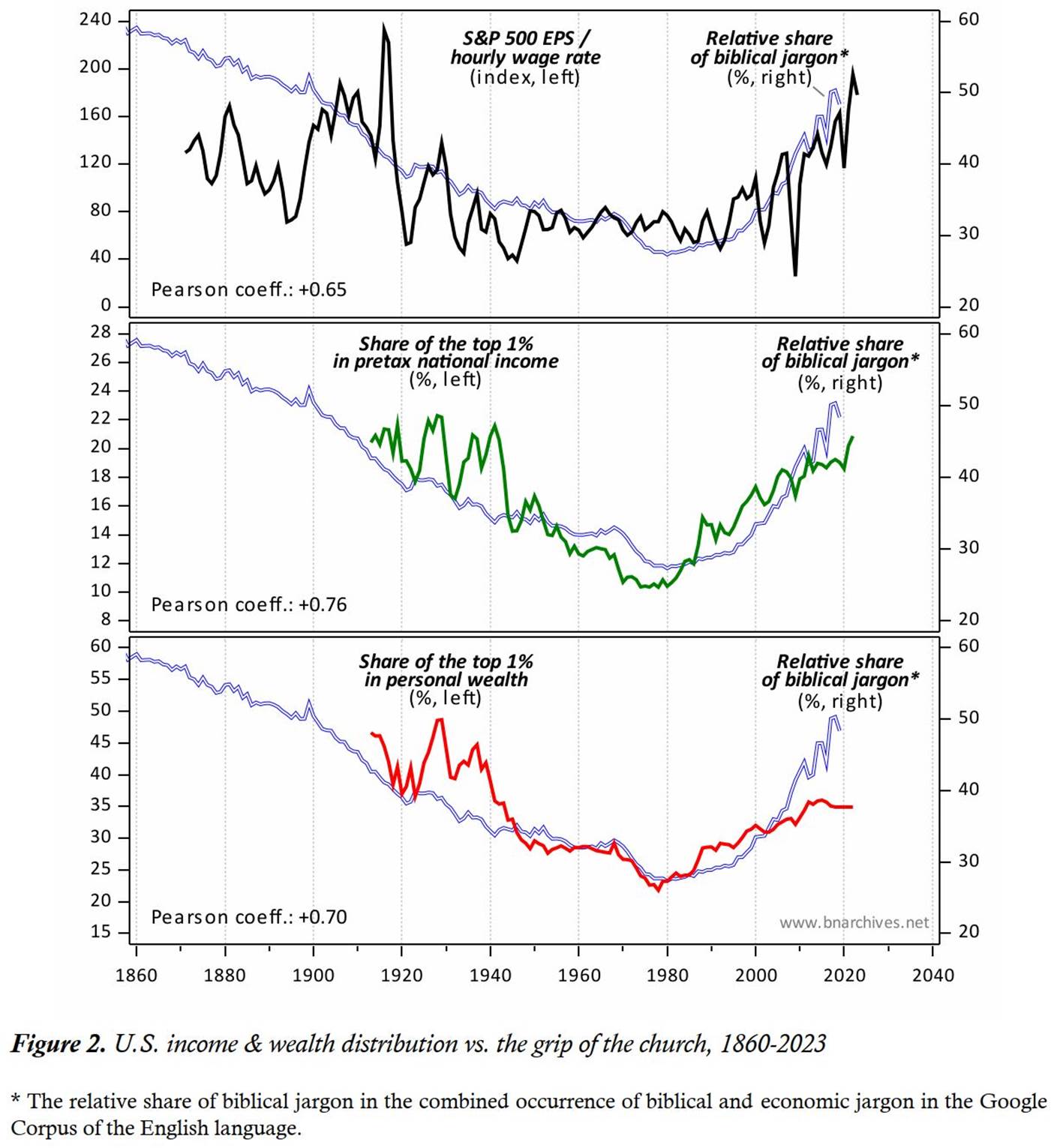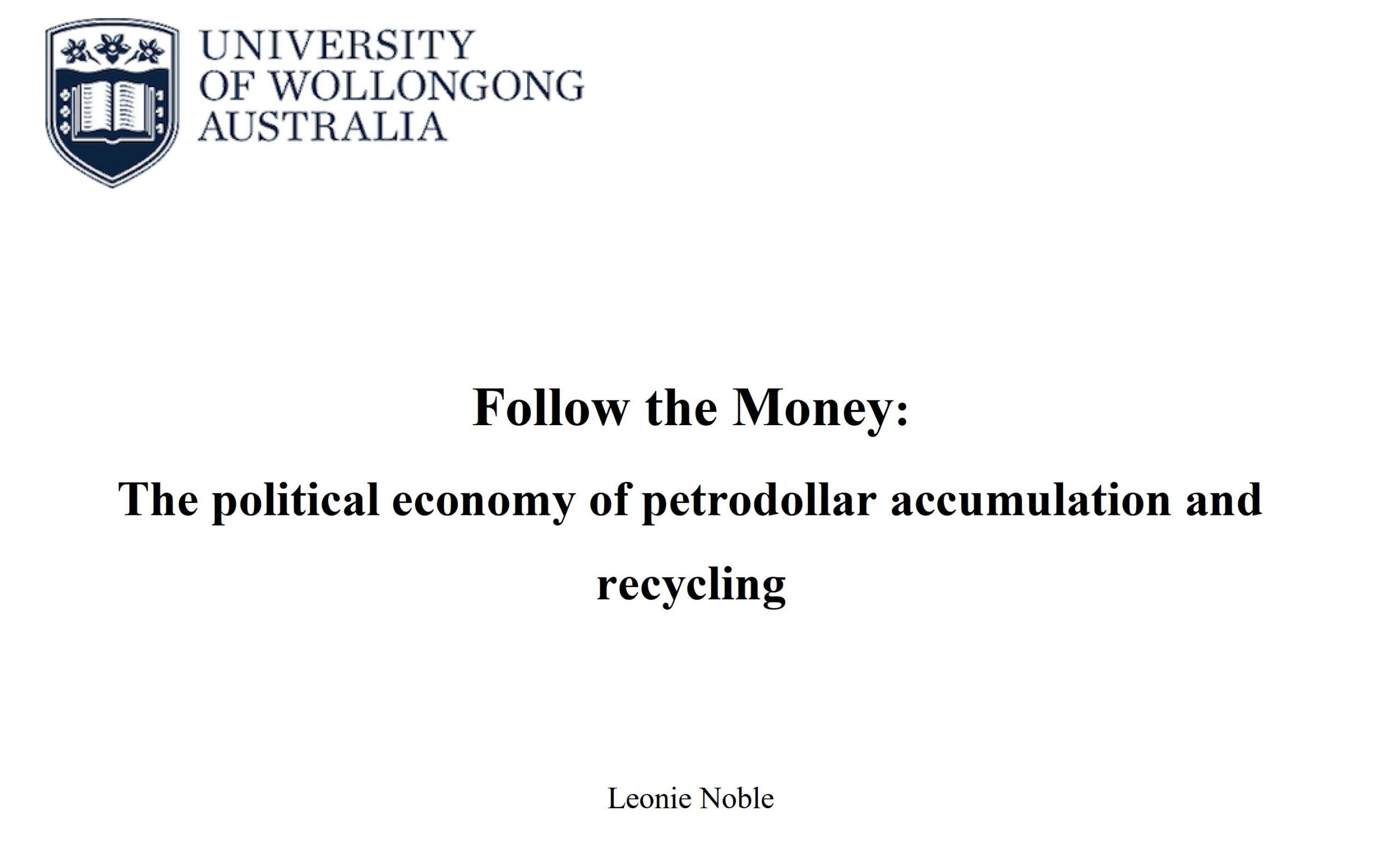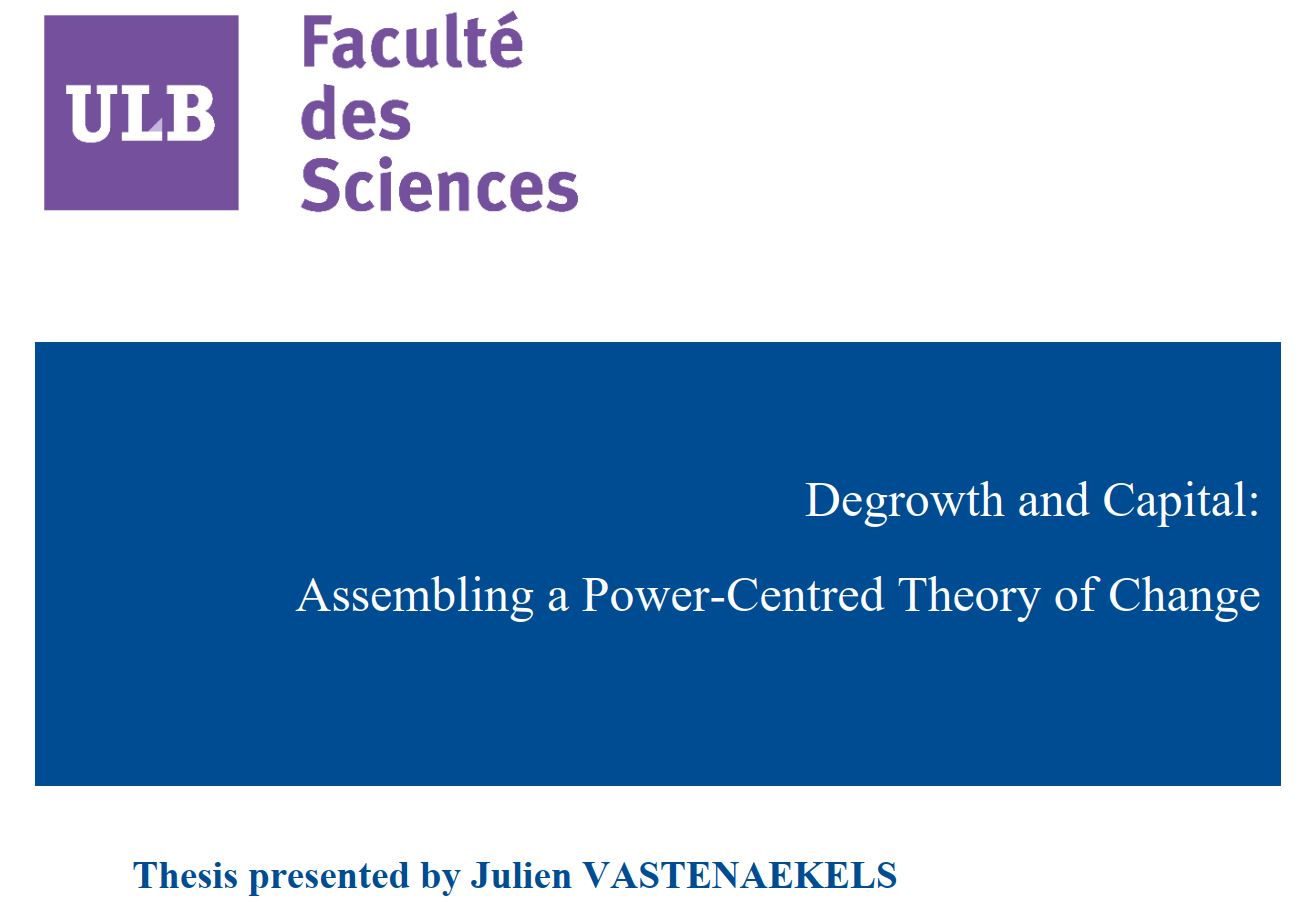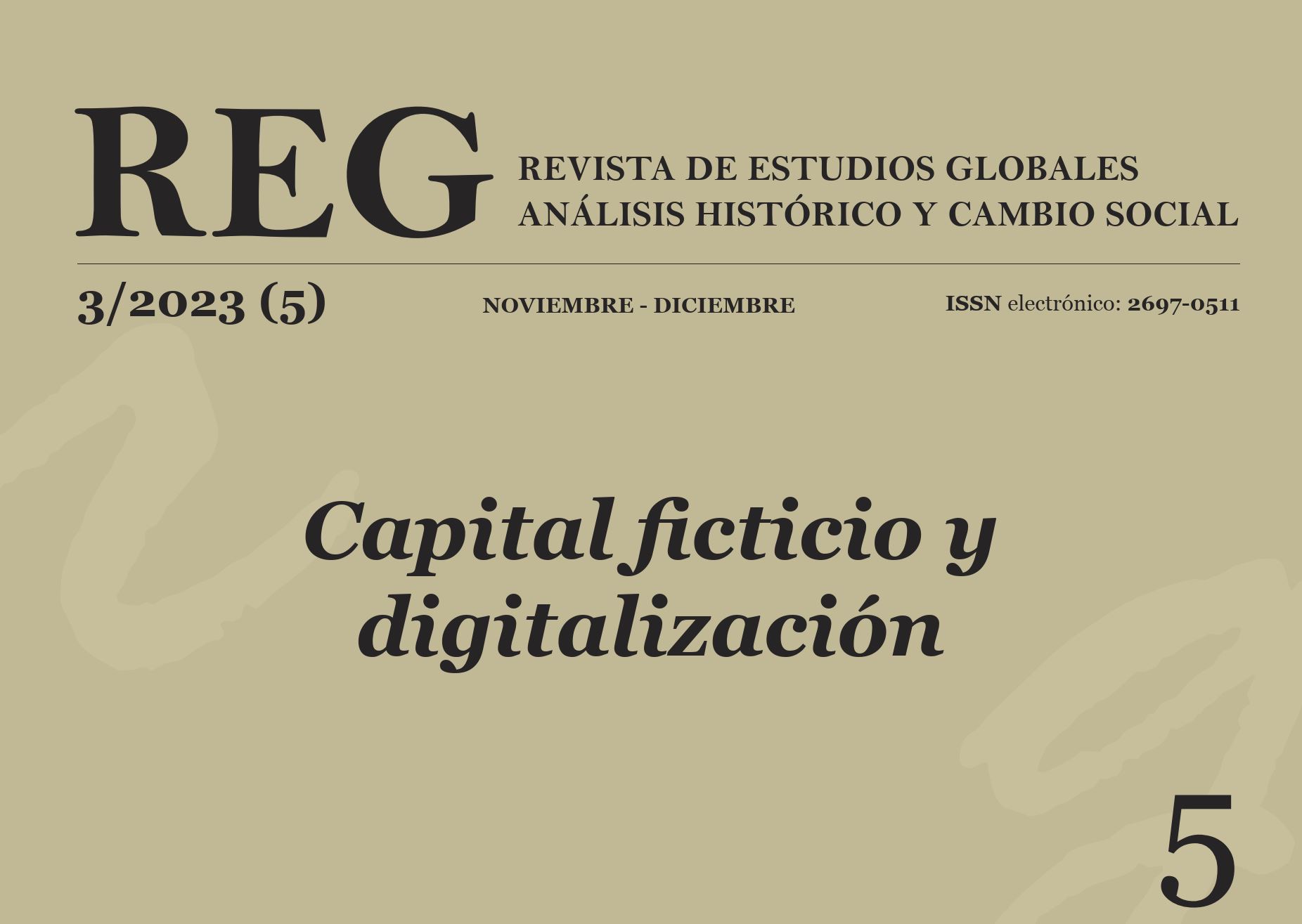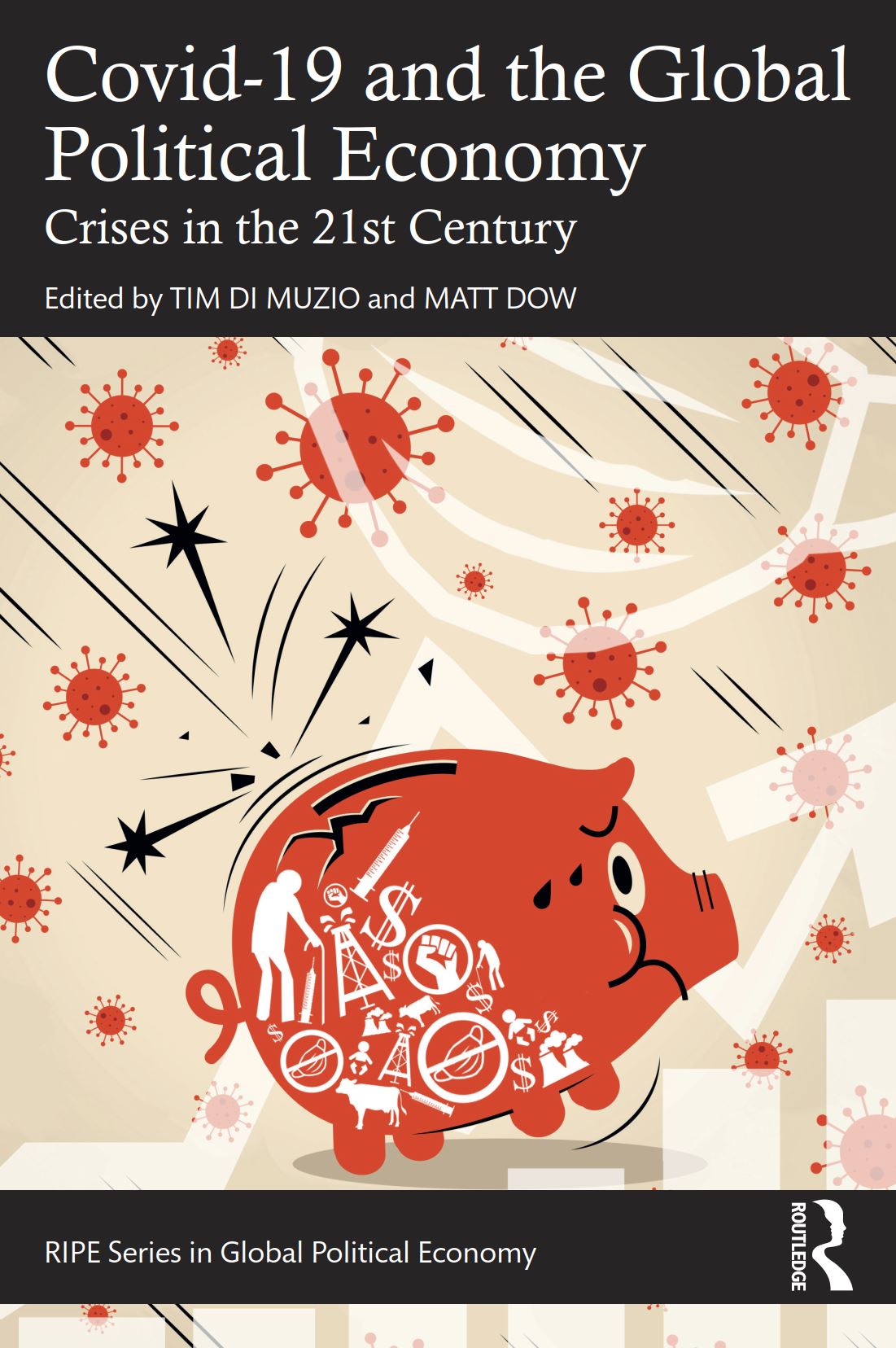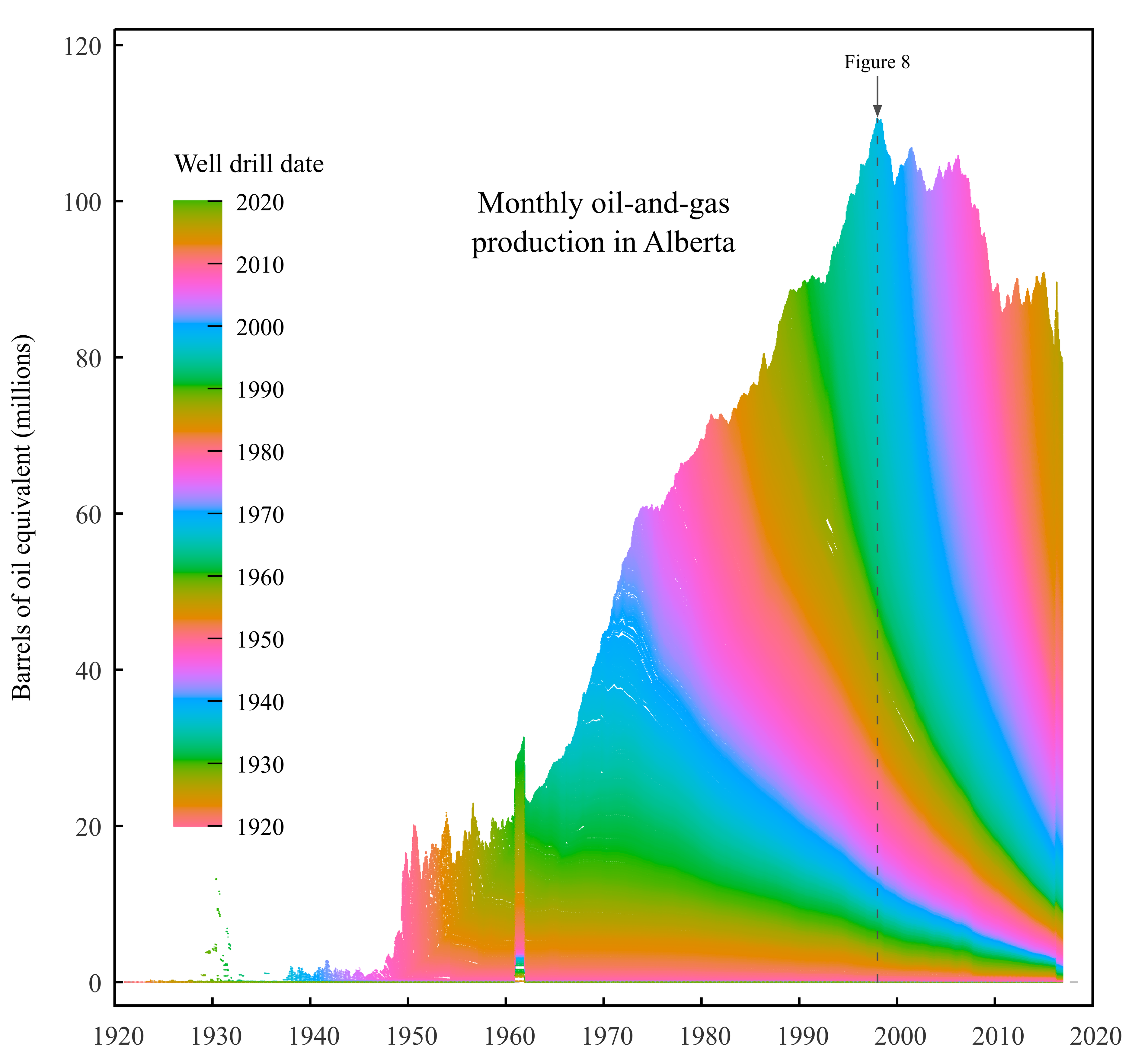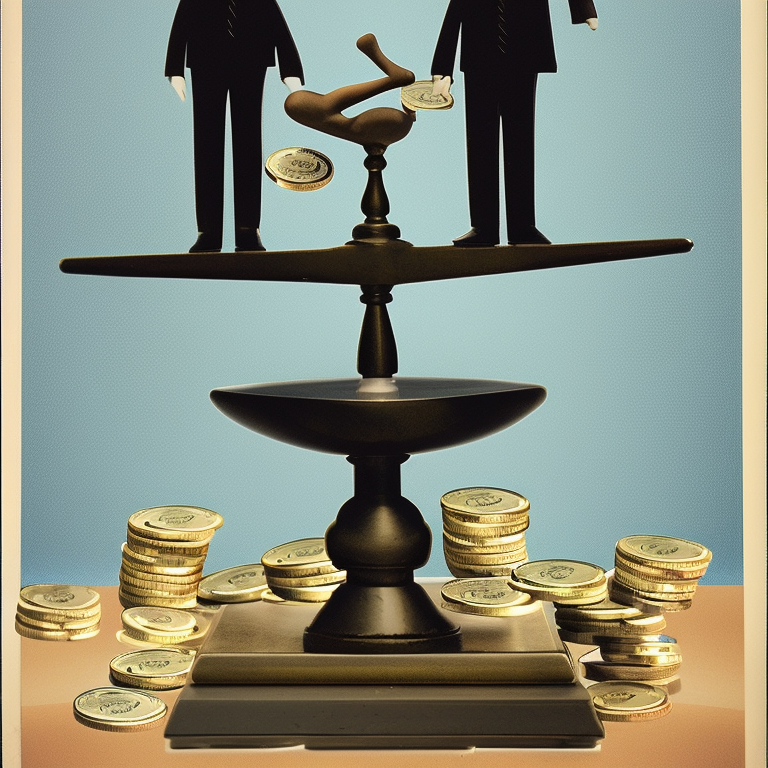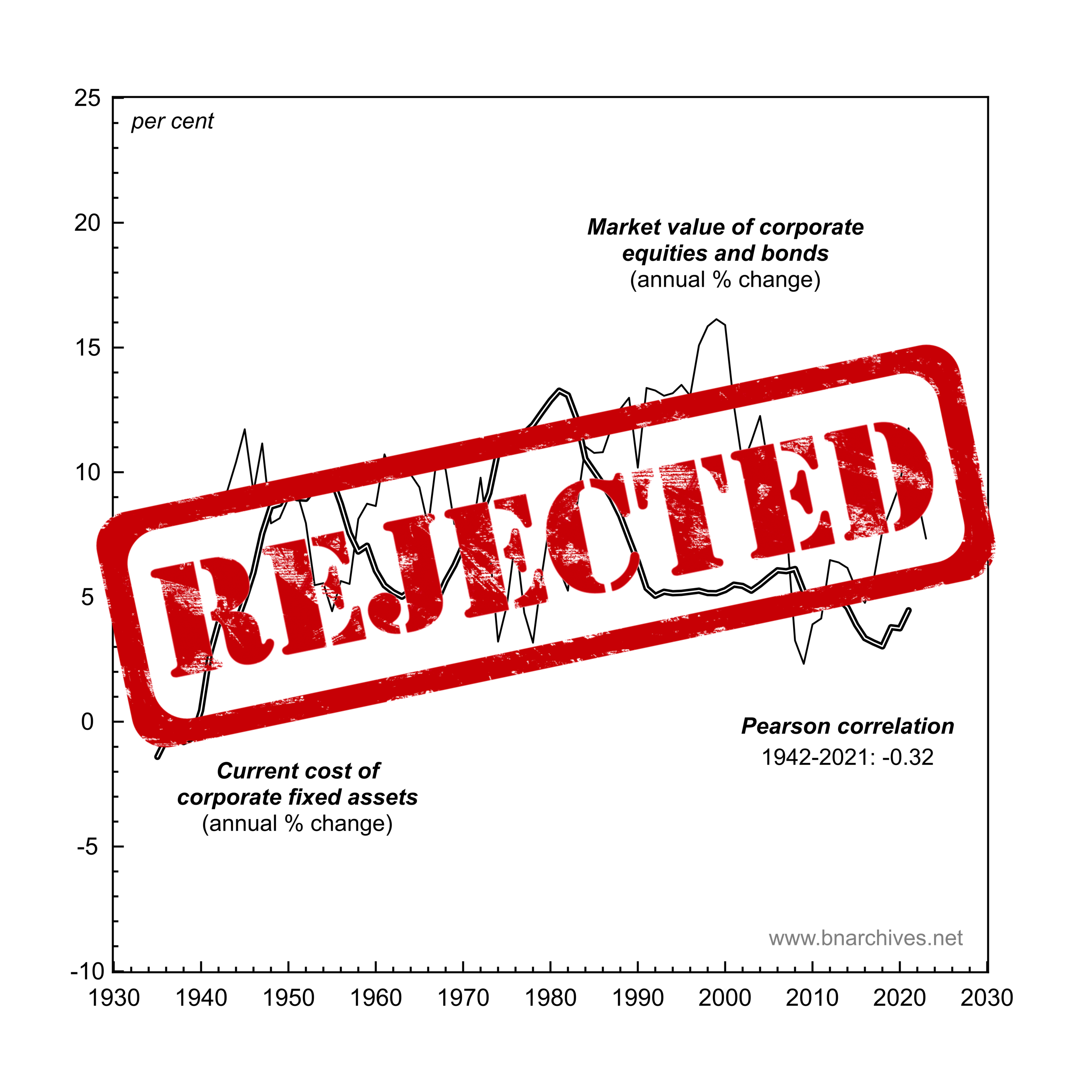Abstract Much of the economic analysis of banking crises focuses on the interplay between concentration and stability. A common theory is that concentration is associated with greater stability, whereas competition is associated with instability. In this view, there is a trade-off between, on the one hand, the higher prices and higher profits associated with a […]
Continue ReadingMouré, ‘A Critical Review of Sandy Brian Hager’s Public Debt, Inequality, and Power’
Abstract Hager’s project examines the historical development of US public debt ownership and its political implications. His main innovation is to approach the topic from the perspective of disaggregated social class and frame questions of public debt ownership in terms of social inequality and power. He tackles four questions: who are the owners of the […]
Continue ReadingBichler & Nitzan, ‘The Road to Gaza’
Abstract The war that started in 2023 between Hamas and Israel is driven by various long-lasting processes, but it also brings to the fore a new cause that hitherto seemed marginal: the armed militias of the Rabbinate and Islamic churches. The Rabbinate militias, embodied in Jewish settler organizations, have taken over not only Palestinian lands, […]
Continue ReadingNoble, ‘Follow the Money: The Political Economy of Petrodollar Accumulation and Recycling’
Abstract This thesis makes two unique contributions to the International Political Economy literature. It presents the first comprehensive, empirical investigation of petrodollar accumulation and recycling spanning the period 1980-2021. It also corrects the misconception that petrodollar recycling in the 1970s and 1980s involved the extension of loans to developing countries using fractional reserve banking and […]
Continue ReadingMarshall, ‘Rethinking the Political Economy of Environmental Conflict: Lessons from the UK Fracking Controversy’
Abstract As governments and corporations have intensified their efforts to locate, extract, and capitalise oil, gas, and various other biophysical materials, the world has simultaneously witnessed a proliferation of social resistance to these efforts. While taking many forms, such resistance, and concomitant ecological distribution conflicts (EDCs), are invariably motivated by a diverse range of objections […]
Continue ReadingVastenaekels, ‘Degrowth and Capital: Assembling a Power-Centred Theory of Change’
Abstract In the context of contemporary socio-environmental shifts, the concept of “degrowth” advocates for transforming societies to ensure environmental justice and a well-being for all within planetary boundaries. This PhD thesis, positioned within degrowth studies, provides a processual, holistic and interdisciplinary exploration of the dynamics between degrowth transformations and capital accumulation, understood as an all-encompassing […]
Continue ReadingLet them eat semaglutides
Originally published at sbhager.com Sandy Brian Hager Reading in the latest FT Weekend about NovoNordisk’s recent moves to corner the market for weight loss drugs, I was reminded of an eye-opening article from Rana Foroohar late last year. In that piece, the always-sharp Foroohar discusses the emergence of new blockbuster drugs known as semaglutides. These […]
Continue ReadingSCMS Presentation: The Political Economic Roots of Hollywood Strikes, 1950-2023
Originally published at notes on cinema James McMahon This paper investigates the timing of labour strikes in Hollywood. The occurrence of strikes, such as the WGA and SAG-AFTRA strikes in 2023, can make sense when we have the hindsight to piece together the historical details of what created rifts between labour and management. But was […]
Continue ReadingBichler & Nitzan, ‘The Mismatch Thesis. Fiction and Reality in the Accumulation of Capital’
Abstract Political economists, both mainstream and Marxist, find it difficult to reconcile the «real» and «financial» appearances of capital. The conventional view is that «real» capital is an objective productive entity; that «finance» merely reflects this reality; and that, unfortunately, the reflection is often inaccurate, causing the two to «mismatch». This convention, we argue, is […]
Continue ReadingAlberta’s Rockefeller coups, Part 6: The Financial Frauds of American Empire Are Driving Climate Disaster, But Both Could Still Be Thwarted
Regan Boychuk Author’s Note: John D. Rockefeller Sr. had the last laugh about American anti-trust law and the muck-raking media before descending to Dante’s 9th Circle in May 1937. The oil industry’s center of gravity had begun shifting towards Texas after Spindletop in 1901, but Rockefeller coups across North America in 1931, 1935, 1938, and 1940 […]
Continue ReadingAnderson, ‘From Operation Warp Speed to TRIPS. Vaccines as Assets’
Abstract This chapter examines the political economy of biopharmaceutical innovation, focusing primarily on vaccines in the Covid-19 pandemic. This analysis aims to make visible the deep entanglements that entrench an extractive and dysfunctional innovation ecosystem, calcifying inequities in global access to essential medicines. The chapter argues that the current inequities in vaccine access are not […]
Continue ReadingA Case Study of Fossil-Fuel Depletion
Originally published at Economics from the Top Down Blair Fix A few months ago I received an intriguing email from researcher and activist Regan Boychuk. For the past 15 years, Boychuk has been studying the oil-and-gas industry in Alberta (Canada) and he wanted to know if I would join his project. I immediately said yes. […]
Continue ReadingThe political economic roots of Hollywood strikes, Part 3
Originally published at notes on cinema James McMahon Around the time of this post, SAG-AFTRA and the Alliance of Motion Picture and Television Producers (AMPTP) produced a tentative agreement in their 2023 negotiations. The SAG-AFTRA National Board approved the tentative agreement, and recommends for the ratification of the 2023 TV/Theatrical contracts. – J When the […]
Continue ReadingBichler & Nitzan, ‘Blood and Oil in the Orient: A 2023 Update’
Abstract The 2023 war between Hamas and Israel elicits many different explanations. As with previous regional hostilities, here too, the pundits and commentators have numerous overlapping processes to draw on – from the struggle between the Zionist and Palestinian national movements, to the deep hostility between the Rabbinate and Islamic churches, to the many conflicts […]
Continue ReadingHow trade secrets swallowed your right to know
Originally published at pluralistic.net Reproduced under a Creative Commons Attribution 4.0 license Cory Doctorow If you’ve never had a fight over the phrase “intellectual property,” count yourself lucky, you normie, you. In the land of Free Software and Free Culture, “IP” is fightin’ words. Not unreasonably, mind you. “IP” was a deliberately ploy, undertaken by […]
Continue ReadingThe political economic roots of Hollywood strikes, Part 2
Originally published at notes on cinema James McMahon Missed Part 1? You should start here. Author’s note: Around the time of this post, the WGA and the Alliance of Motion Picture and Television Producers (AMPTP) produced a tentative agreement in their 2023 negotiations. The WGA Negotiating Committee, the WGAW Board and WGAE Council all voted […]
Continue ReadingThe Costly Betrayal of Cost-Benefit’s Promise
Jerry Cayford Originally published here A conversation, eighty-some years ago, shaped our world today. The conversation was among three papers in economics. In 1939, Nicholas Kaldor and John Hicks published papers that steered economics through a major crisis, one that threatened its legitimacy as an advisor on public policy. With the Great Depression still raging […]
Continue ReadingInstitution Size as a Window into Cultural Evolution
Originally published at Economics from the Top Down Blair Fix One of the challenges of studying the past is that time has a maddening way of erasing evidence. Take the origin of life — the ultimate cold case. Had the first organisms been wise enough to fossilize themselves, we would know exactly how life began. […]
Continue ReadingBichler & Nitzan, ‘Manuscripts Don’t Burn’
Manuscripts Don’t Burn SHIMSHON BICHLER and JONATHAN NITZAN September 2023 Keywords censorship, ideology, marxism, neoliberalilsm, peer review, plagiarism Citation Bichler, Shimshon, and Nitzan, Jonathan. 2023. ‘Manuscripts Don’t Burn’. Review of Capital as Power, Vol. 2, No. 2, pp. 175–189. Download PDF 1 Flat Reality The French Revolution changed the world. In the new order, the masters […]
Continue ReadingBichler & Nitzan, ‘The Capital as Power Approach: An Invited-then-Rejected Interview’
The Capital as Power Approach An Invited-then-Rejected Interview with Shimshon Bichler and Jonathan Nitzan SHIMSHON BICHLER and JONATHAN NITZAN September 2023 Keywords capital accumulation, capitalization, interview, Marxism, modes of power, stagflation, systemic fear, value theory Citation Bichler, Shimshon, and Nitzan, Jonathan. 2023. ‘The Capital as Power Approach: An Invited-then-Rejected Interview with Shimshon Bichler and Jonathan […]
Continue Reading
